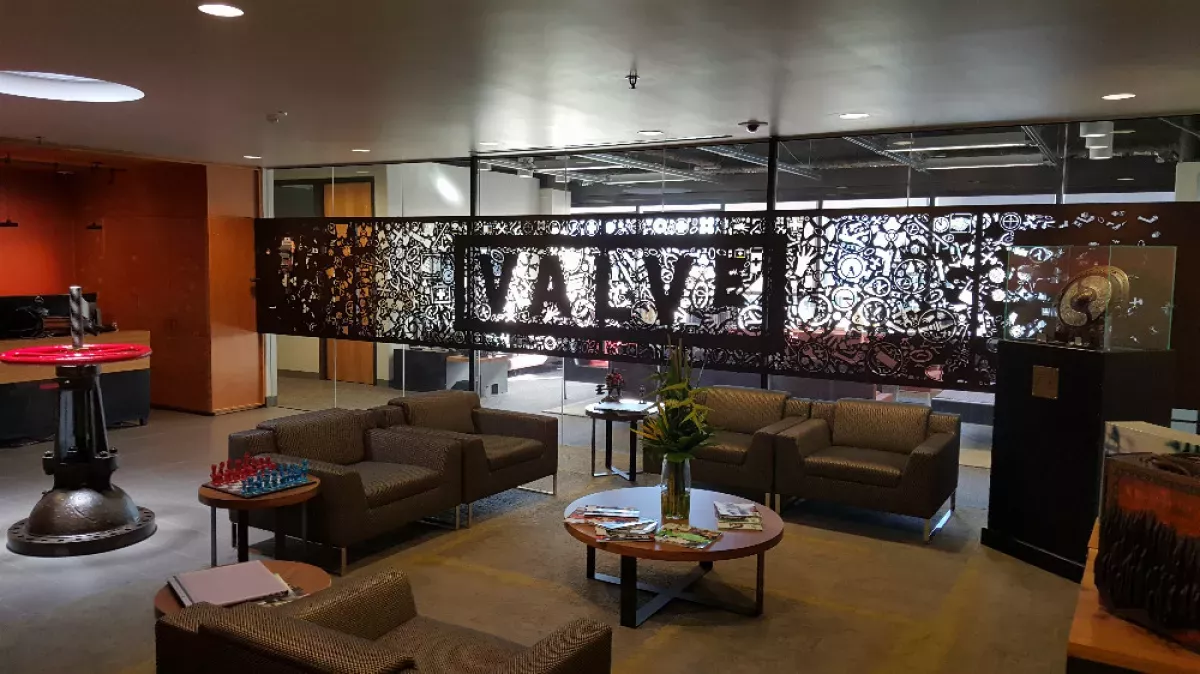Valve Corporation, a renowned American video game company headquartered in Bellevue, Washington, has made significant contributions to the gaming industry. As the creator of the popular digital distribution platform Steam, Valve has revolutionized how players access and enjoy video games. Furthermore, the company has developed highly acclaimed game franchises, including Half-Life, Counter-Strike, Portal, Day of Defeat, Team Fortress, Left 4 Dead, and Dota, which have garnered immense popularity and critical acclaim worldwide.
August 24, 1996: Valve Founded
On August 24, 1996, Gabe Newell and Mike Harrington officially established Valve, L.L.C., choosing a name that defied the prevailing industry trends.
1996: Valve Founded
Valve was founded in 1996 by former Microsoft employees Gabe Newell and Mike Harrington.
1997: Valve Enters Publishing Agreement with Sierra Entertainment
In 1997, Valve signed a publishing agreement with Sierra Entertainment for the release of Half-Life and future titles. This agreement, while initially beneficial, would later become a source of legal disputes between the two companies.
November 1998: Half-Life Released
Half-Life was released in November 1998 and became an instant success, praised for its realism, engaging narrative, and impactful gameplay.
1998: Valve Acquires TF Software
In a strategic move, Valve acquired TF Software in 1998, the team behind the popular Team Fortress mod for Quake, signaling their interest in multiplayer experiences.
1998: Half-Life Released
Valve released Half-Life in 1998, a critically acclaimed FPS game that had a significant impact on the genre.
1999: Two New Games Released
Valve released two new games in 1999: Half-Life: Opposing Force, an expansion pack, and Team Fortress Classic, a remake of a popular Quake mod.
January 2000: Valve and Cisco Announce PowerPlay to Reduce Online Gaming Latency
In January 2000, Valve, in partnership with Cisco Systems, announced PowerPlay, an ambitious initiative aimed at significantly reducing latency in online games. PowerPlay involved a combination of specialized protocols and router-level standards designed to prioritize gaming traffic, promising a smoother online gaming experience.
2000: Mike Harrington Leaves Valve
After a successful run with Half-Life, Mike Harrington left Valve in 2000.
January 2001: Valve Abandons PowerPlay
Despite announcing its finalization, Valve made the decision to abandon PowerPlay in January 2001, just a year after its initial announcement. The project, which aimed to revolutionize online gaming latency, faced challenges in terms of infrastructure requirements and industry adoption.
2001: Valve and Sierra Revise Publishing Agreement
In 2001, Valve and Sierra renegotiated their publishing agreement, with Valve securing greater control over digital distribution rights. This move paved the way for the development and eventual dominance of Steam.
2001: Two New Games Released
Valve released two more games in 2001: Half-Life: Blue Shift, another expansion for Half-Life, and Half-Life: Decay, a cooperative expansion.
March 2002: Valve Unveils Steam at GDC
At the Game Developers Conference in March 2002, Valve publicly revealed Steam, their digital distribution platform for video games. This marked a pivotal moment in PC gaming, as Steam would go on to revolutionize how games were purchased and played.
August 2002: Valve Sues Sierra Over Contract Breach
The relationship between Valve and Sierra deteriorated significantly in August 2002 when Valve filed a lawsuit alleging breach of contract. Valve accused Sierra of distributing their games to internet cafes without authorization, withholding royalties, and delaying the release of Counter-Strike: Condition Zero.
2002: Valve Announces Steam
Valve first announced Steam, its digital distribution service, at the 2002 Game Developers Conference.
2002: Steam Launched
Valve took a significant step in 2002 by launching Steam, a digital distribution platform for video games. Initially met with skepticism, Steam would go on to revolutionize how PC games were bought and sold.
September 2003: Valve Launches Steam
Initially announced at the 2002 Game Developers Conference, Steam, Valve's digital distribution service, was officially launched in September 2003. The platform's initial purpose was to deliver patches and updates for Valve's online games.
2003: Valve Relocates and Reincorporates
In 2003, Valve made significant changes by moving to Bellevue, Washington, and restructuring as Valve Corporation, reflecting its growth.
2003: Defense of the Ancients (DotA) Mod Released
The year 2003 saw the release of Defense of the Ancients (DotA), a Warcraft III mod that would go on to spawn the wildly popular MOBA genre. Created by Kyle Sommer (Eul), DotA's innovative gameplay and strategic depth quickly garnered a devoted following.
2003: Steam Launched
Valve launched Steam in 2003, a digital distribution platform for video games, initially offering only Valve games.
September 2004: Eul Allegedly Assigns Open-Source Copyright License to Dota
In September 2004, Eul, one of the original creators of the Dota mod, allegedly assigned an open-source copyright license to the game. This claim later became a point of contention in copyright lawsuits.
November 29, 2004: Court Rules in Favor of Valve in Vivendi Case
On November 29, 2004, the U.S. District Court for the Western District of Washington ruled in favor of Valve in their legal battle against Vivendi Universal. The court found Vivendi in breach of contract, affirming Valve's right to control the distribution of their games.
2004: Half-Life 2 Released
After years of development, Half-Life 2 was released in 2004, receiving critical acclaim for its groundbreaking physics, immersive storytelling, and memorable characters.
April 29, 2005: Valve and Vivendi Reach Settlement
Following the court's decision, Valve and Vivendi reached a settlement on April 29, 2005, ending their long-running legal dispute. This paved the way for Valve to secure a new distribution partnership with Electronic Arts.
July 18, 2005: Electronic Arts Becomes Valve's New Distribution Partner
With the Vivendi dispute behind them, Valve announced a multi-year distribution deal with Electronic Arts on July 18, 2005. This partnership marked a significant turning point for Valve, solidifying their position in the gaming industry.
2005: Valve's Estimated Gross Revenue
Forbes estimated that Valve's gross revenue in 2005 was $70 million, highlighting its financial success in the gaming industry.
2006: Half-Life 2: Episode One Released
Valve released Half-Life 2: Episode One in 2006, marking the beginning of their episodic content strategy.
2007: Episodic Content and New Titles
Continuing their episodic approach, Valve released Half-Life 2: Episode Two in 2007, alongside the highly successful multiplayer game Team Fortress 2 and the innovative puzzle game Portal.
2007: Three New Games Launched
Valve had a busy year in 2007, launching Half-Life 2: Episode Two, the multiplayer game Team Fortress 2, and the innovative puzzle game Portal.
January 2008: Valve Acquires Turtle Rock Studios
Expanding its development capabilities, Valve acquired Turtle Rock Studios in January 2008, the studio behind the popular cooperative zombie shooter, Left 4 Dead.
2008: Left 4 Dead Released
Valve released Left 4 Dead in 2008, a cooperative zombie shooter that gained immense popularity.
April 2009: Valve Sues Activision Blizzard over Unpaid Arbitration Award
In April 2009, Valve found themselves in another legal battle, this time with Activision Blizzard, who had acquired Sierra Entertainment. Valve sued Activision for refusing to honor the arbitration agreement stemming from the previous Vivendi case, specifically the payment of the remaining $424,136.
May 2009: Valve Cancels The Crossing
Valve's collaboration with Arkane Studios on "The Crossing," a game that blended single-player and multiplayer modes, was canceled in May 2009.
2009: Valve Hires IceFrog, Acquires Rights to Dota
Recognizing the immense potential of the burgeoning MOBA genre, Valve hired IceFrog, the lead developer of DotA-Allstars, in 2009. This strategic move signaled Valve's intention to enter the MOBA market and capitalize on the popularity of Dota.
March 2010: Turtle Rock Studios Splits from Valve
In March 2010, Turtle Rock Studios decided to become independent from Valve, marking an interesting turn in their relationship.
August 2010: DotA-Allstars, LLC Contests Valve's Dota Trademark
A group of former DotA-Allstars developers, operating under the name DotA-Allstars, LLC, filed an opposing trademark in August 2010, challenging Valve's claim to the Dota intellectual property. This move ignited a legal battle over the rights to one of the most influential mods in gaming history.
2010: Valve's Estimated Revenue
Screen Digest analyst Ed Barton projected that Valve's revenue in 2010 was in the "high hundreds of millions of dollars," signifying substantial growth.
2010: IceFrog Joins Valve
Valve made a significant hire in 2010 by bringing on IceFrog, the anonymous developer behind the immensely popular Warcraft III mod, Defense of the Ancients.
2010: Valve Moves to a Larger Office
Valve's expansion continued in 2010 with a move to a larger office in Bellevue, accommodating its growing workforce.
April 2011: Portal 2 Released
Valve released Portal 2 in April 2011, captivating players with its mind-bending puzzles, witty humor, and engaging narrative, solidifying the franchise's place as a modern classic.
2011: Half-Life 2 Sales Reach 12 Million
By 2011, Half-Life 2 had sold 12 million copies, demonstrating its enduring popularity and status as a landmark title in gaming history.
2011: Steam Dominates PC Game Market
By 2011, Steam had captured a significant portion of the PC gaming market, controlling 50 to 70% of downloaded PC game sales, highlighting its influence in digital distribution.
2011: Valve's Estimated Worth and Market Share
By 2011, Valve was estimated to be worth between $2 and $4 billion, employing 250 people, and controlling a significant portion of the downloaded PC games market, showcasing its dominance.
2011: Portal 2 Released
Valve released Portal 2 in April 2011, expanding upon the innovative gameplay and storytelling of its predecessor.
May 2012: Blizzard and Valve Settle Dota Trademark Dispute
After a protracted legal battle, Blizzard Entertainment and Valve Corporation reached an out-of-court settlement in May 2012 regarding the Dota trademark. Valve retained commercial rights to the Dota name, while Blizzard reserved the right for non-commercial use by fans.
August 1, 2012: Valve Revises Steam Subscriber Agreement
On August 1, 2012, Valve announced revisions to its Steam Subscriber Agreement (SSA). The key change prohibited users from filing class action lawsuits against the service provider.
December 2012: Valve Acquires Star Filled Studios
In December 2012, Valve acquired Star Filled Studios, a small studio, with the intention of establishing a presence in San Francisco.
2012: Valve's Estimated Value Exceeds $3 Billion
By 2012, Valve had grown to employ around 250 people and was estimated to be worth over $3 billion, demonstrating its success in the gaming industry.
2012: Valve Teases "Steam Box"
In 2012, Valve hinted at the development of a console/PC hybrid designed for the living room, which was dubbed the "Steam Box" by the media.
July 2013: Valve Launches Pipeline, an Internship Program for High School Students
Breaking with their tradition of hiring experienced developers, Valve launched Pipeline in July 2013. This internship program, aimed at high school students, provided an opportunity to learn about video game development and challenge the company's internal approach to training new talent.
August 2013: Valve Closes San Francisco Office
Valve's San Francisco office, established through the acquisition of Star Filled Studios, was closed in August 2013.
September 2013: Valve Announces SteamOS
Valve officially announced SteamOS in September 2013. Positioned as the first in a series of announcements related to the Steam Machine platform, SteamOS was a freely available Linux-based operating system designed to extend Steam's functionality to the living room.
2013: Dota 2 Released
After much anticipation, Valve released Dota 2 in 2013, a standalone sequel to the Warcraft III mod, Defense of the Ancients, developed by IceFrog. The game quickly gained popularity and became a major player in the emerging esports scene.
2013: Valve Shifts Focus to Virtual Reality
In 2013, Gabe Newell, co-founder of Valve, made the decision to shift the company's focus towards virtual reality, believing it to be the future of gaming, leading to internal changes and layoffs.
2013: Valve Releases Dota 2
In 2013, Valve officially launched Dota 2, their highly anticipated entry into the MOBA genre. Building upon the legacy of the original Dota mod, Dota 2 quickly gained a massive following and became a major player in the competitive esports scene.
May 2014: Valve Delays Steam Machine
Citing problems with the game controller, Valve announced in May 2014 that the release of its own SteamOS-powered Steam Machine would be delayed until 2015.
July 2014: Steam Reaches 3,400 Games and Growing User Base
By July 2014, Steam had grown to host over 3,400 games, demonstrating its expanding library and popularity as a digital distribution platform.
2014: Half-Life's Legacy
By 2014, Half-Life's influence on the FPS genre was undeniable, with many considering it a turning point in the evolution of first-person shooters.
2014: Mobile Games "Dota Legends" and "Heroes Charge" Released
In 2014, Lilith and uCool launched their respective mobile games, "Dota Legends" and "Heroes Charge," both drawing inspiration from Dota and its sequels.
2014: ACCC Initiates Action Against Valve
The Australian Competition & Consumer Commission (ACCC) commenced legal proceedings against Valve in 2014.
January 1, 2015: Valve S.a.r.l. Tax Loophole Nears Closure
Valve used its Luxembourg subsidiary, Valve S.a.r.l., to sell games to users in the UK, exploiting a tax loophole to avoid paying the full 20% value-added tax (VAT). This loophole was expected to close on January 1, 2015.
March 2015: Valve and HTC Unveil SteamVR and HTC Vive
At the Game Developers Conference in March 2015, Valve and HTC jointly unveiled SteamVR and the HTC Vive. The platform aimed to distinguish itself with its "Lighthouse" motion tracking system, allowing for "room-scale" VR experiences, a significant advancement in consumer VR technology.
March 2015: Valve Announces Source 2 Engine
In March 2015, Valve announced its new game engine, Source 2.
December 2015: UFC Que Choisir Files Lawsuit Against Valve
In December 2015, French consumer rights group UFC Que Choisir filed a lawsuit against Valve, advocating for users' rights to resell their software.
December 2015: French Consumer Group Sues Valve
The French consumer group UFC Que Choisir filed a lawsuit against Valve in December 2015. The lawsuit challenged several of Steam's policies, including the use of the VAT tax loophole, that were deemed to be in conflict with French law.
2015: Third-Party Steam Machines Launch
Despite the delays with Valve's own Steam Machine, third-party manufacturers, including Alienware, ZOTAC, and CyberPowerPC, launched their versions of the Steam Machine in 2015.
2015: Steam Machine Released
In 2015, Valve released the Steam Machine, a line of gaming computers designed to compete with traditional consoles, but the product failed to gain traction in the market.
2015: Valve Disables Geo-Blocking Within the EU
Valve disabled geo-blocking within the European Union in 2015.
March 29, 2016: Valve Found Guilty of Breaching Australian Consumer Law
On March 29, 2016, Valve was found in violation of Australian consumer law.
June 2016: Steam Machine Sales Fall Short
Despite the initial hype and partnerships, fewer than half a million Steam Machines were sold by June 2016, indicating a lukewarm reception from consumers.
July 2016: Lawsuits Allege Valve's Involvement in Underage Gambling
Two lawsuits filed in June and July 2016 accused Valve of facilitating underage gambling through third-party sites using the Steamworks API for betting with "skins" from Counter-Strike: Global Offensive.
October 2016: Washington State Gambling Commission Orders Valve to Halt Skin Gambling
In October 2016, the Washington State Gambling Commission directed Valve to stop the use of virtual skins for gambling on Steam, threatening legal action if they failed to comply.
October 17, 2016: Valve Responds to Washington State Gambling Commission
On October 17, 2016, Valve asserted in a letter to the Washington State Gambling Commission that they had no involvement with gambling sites utilizing skins and were not in violation of any laws.
December 2016: Valve Fined A$3 Million in Australia
In December 2016, Valve was ordered to pay a A$3 million fine in Australia and to inform Australian consumers about their rights when purchasing games on Steam.
2016: Former Employee Sues Valve Alleging Poor Working Conditions
A former employee filed a lawsuit against Valve in 2016, claiming poor working conditions and harassment.
2016: Full Development of VR Half-Life Begins
Full development of a VR Half-Life game commenced around late 2016, involving the largest team in Valve's history.
2016: Valve Expands Office Space
Further solidifying its presence in Bellevue, Valve signed a lease for a nine-floor space in the Lincoln Square complex in 2016, significantly increasing its office size.
2016: Valve Releases HTC Vive and The Lab
In 2016, Valve, in collaboration with HTC, released the HTC Vive, a VR headset. The company also experimented with VR games, releasing "The Lab," a collection of VR minigames.
January 1, 2017: Valve S.a.r.l. Ceases Business
Valve S.a.r.l., Valve's Luxembourg subsidiary used to navigate VAT regulations in the EU, ceased operations on January 1, 2017. The main company resumed handling EU sales directly.
January 2017: Valve Acquires Impulsonic
In January 2017, as part of their commitment to developing a major VR Half-Life game, Valve acquired Impulsonic, a 3D audio software developer.
February 2017: European Commission Investigates Valve for Anti-Competitive Practices
The European Commission launched an investigation into Valve and five other publishers in February 2017 for alleged anti-competitive practices, particularly the use of geo-blocking on Steam.
August 2017: Steam Reaches 67 Million Monthly Active Users
Steam's popularity continued to soar, with Valve announcing in August 2017 that the platform had reached over 67 million monthly active users and 33 million daily active users.
November 2017: Microsoft Adds Beta Support for SteamVR on Windows Mixed Reality Headsets
In November 2017, Microsoft took a step towards greater VR interoperability by adding beta support for Valve's SteamVR service to their Windows Mixed Reality headsets.
December 2017: Valve's Appeals Rejected by Australian Courts
Valve's appeals against the Australian court's decision were dismissed in December 2017.
2017: Steam Generates $3.4 Billion in Revenue
In 2017, Steam generated an estimated $3.4 billion in revenue, solidifying its position as a dominant force in the PC gaming market and showcasing the profitability of its platform and services.
2017: Valve and Blizzard Initiate Legal Action Against Lilith and uCool
In 2017, Valve and Blizzard jointly filed lawsuits against Lilith and uCool, alleging copyright infringement related to the use of the "Dota" name in their mobile games.
2017: Jury Rules in Favor of Valve
In 2017, a jury ruled in favor of Valve in the lawsuit filed by a former employee.
2017: Valve's Transition to Service Provider and Game Cancellations
In 2017, media speculation arose that Valve's focus had shifted from game development to being a service provider with Steam, which generated an estimated $3.4 billion that year. This period saw the cancellation of several Valve games, including Half-Life projects like Episode Three, Left 4 Dead 3, a Soulslike game, and the voxel-based A.R.T.I. Additional VR projects, SimTrek and a costly VR device called Vader, were also shelved. The abundance of unsuccessful projects and lack of shared vision reportedly damaged morale, leaving many players frustrated with the anticipation of a new Half-Life game.
2017: Valve Explores VR and Half-Life's Return
Recognizing the demand for a major VR AAA game, Valve began exploring the development of such a game in 2017. After developing several prototypes and facing challenges with the Portal series' portal systems in VR, they decided on Half-Life. The team saw VR as a way to return to the series, addressing the "terrifyingly daunting prospect" of Half-Life 3, according to designer Robin Walker.
January 2018: Valve Files for "Special Leave" in Australian High Court
In January 2018, Valve filed for a "special leave" to appeal the Australian court's ruling to the High Court of Australia.
January 2018: Steam Surpasses 150 Million Registered Accounts
Steam's user base continued to grow, surpassing 150 million registered accounts by January 2018, highlighting its position as a leading PC gaming platform.
April 2018: Valve's Appeal Dismissed by Australian High Court
The Australian High Court dismissed Valve's appeal in April 2018, upholding its liability under Australian law for direct sales to citizens.
April 2018: Valve Acquires Campo Santo
Valve acquired the independent game developer Campo Santo in April 2018, known for their work on the 2016 adventure game "Firewatch." While Campo Santo was to develop its games under Valve, they initially contributed to the development of Half-Life: Alyx.
November 2018: Valve Releases Artifact
Valve released "Artifact," a digital collectible card game based on Dota 2, in November 2018. Designed by Richard Garfield, the creator of Magic: The Gathering, the game featured unusual pay-for mechanics for acquiring new cards.
June 2019: Valve Releases the Valve Index VR Headset
June 2019 marked Valve's full-fledged entry into the VR hardware market with the launch of their own headset, the Valve Index. Positioned as a premium device, the Index boasted a wider field of view and higher refresh rate compared to competitors, and came bundled with innovative motion controllers that strapped to the user's hands, offering precise tracking and pressure sensitivity.
June 2019: Valve Releases Valve Index and Dota Underlords
June 2019 saw the release of Valve's second-generation VR hardware, the Valve Index. Additionally, they released "Dota Underlords" into early access, an auto battler inspired by the popular Dota 2 community-created mod, "Dota Auto Chess."
August 2019: Valve Contests EU Charges, Citing Limited Geo-Blocking
As of August 2019, Valve planned to fight the EU charges, claiming that geo-blocking affected a minimal portion of its games.
September 2019: Paris High Court Rules in Favor of UFC Que Choisir
The High Court of Paris ruled in favor of UFC Que Choisir in September 2019, mandating that Valve permit the resale of Steam games.
November 2019: Valve Discontinues Steam Controller
Although the Steam Machine line was effectively canceled, Valve continued to manufacture and sell Steam Controllers, its unique game controller designed for the platform, until late November 2019.
March 2020: Valve Releases Half-Life: Alyx
Valve released "Half-Life: Alyx," a VR game, in March 2020. The game received critical acclaim and was widely praised as VR's first "killer app."
2020: Valve Acknowledges Development Challenges
In 2020, Valve acknowledged that its flat organizational structure, while contributing to Steam's success, posed challenges for game development. The lack of hierarchy made it difficult to gain momentum on projects, contributing to cancellations and slowed output in the 2010s. Their VR projects and the development of "Half-Life: Alyx" marked a turning point, requiring the company to set short-term, studio-wide goals to maintain focus.
2020: Half-Life: Alyx Released
Valve returned to the Half-Life series in 2020 with Half-Life: Alyx, a flagship VR game designed for their VR headsets.
January 2021: Valve Confirms Development of Multiple Games
Following the success of "Half-Life: Alyx," Newell revealed in January 2021 that the company was motivated to develop more games, with several already in development.
March 2021: Dota: Dragon's Blood Premieres
"Dota: Dragon's Blood," an animated television series based on Dota and produced in collaboration with Netflix, premiered in March 2021.
April 2021: Valve Abandons Artifact Reboot
In April 2021, Valve abandoned its efforts to reboot "Artifact." The game, despite its initial promise, failed to attract a substantial player base, losing 95% of its players within months of release. Valve stated that they couldn't justify further development due to a lack of interested players.
July 2021: Valve Announces the Steam Deck
In July 2021, Valve announced the Steam Deck, a handheld gaming device designed to provide a portable PC gaming experience. Similar in concept to the Nintendo Switch, the Steam Deck featured the ability to connect to an external monitor and peripherals when docked.
February 2022: Steam Deck Begins Shipping
After much anticipation, Valve began shipping the Steam Deck in February 2022, allowing gamers to experience their Steam libraries on the go.
February 2022: Valve Releases Steam Deck
February 2022 marked the release of the Steam Deck, a portable gaming system developed by Valve, running on their own SteamOS.
2022: Steam Deck Released
Valve released the Steam Deck in 2022, a handheld gaming PC designed to compete with devices like the Nintendo Switch.
January 2023: Report Highlights Valve's Corporate Culture
A report released in January 2023 by People Make Games, based on interviews with current and former Valve employees, provided insights into the company's corporate structure and culture. The report highlighted that Valve's flat structure and stack-ranking compensation system, while promoting individual autonomy, resulted in a poor release record and a lack of employee diversity.
March 2023: Valve Announces Counter-Strike 2
In March 2023, Valve announced "Counter-Strike 2," a new installment in the Counter-Strike series, promising significant technical advancements.
Mentioned in this timeline

Nintendo is a Japanese multinational video game company based in...
The Nintendo Switch is a video game console developed by...

Microsoft an American multinational technology corporation headquartered in Redmond Washington...

San Francisco is a major commercial financial and cultural hub...

The Steam Deck a handheld gaming computer by Valve allows...
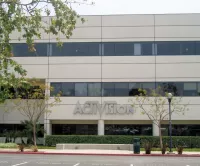
Activision Publishing Inc based in Santa Monica California is a...
Trending
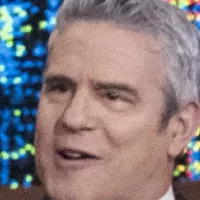
30 minutes ago Lisa Rinna's book reveals bombshells, Andy Cohen expresses thanks despite complex relationship.

30 minutes ago Colton Underwood Addresses 'Bachelor' Past and 'Traitors' Drama: Wells Adams Weighs In.

30 minutes ago DeMar DeRozan Enters Top 20 All-Time NBA Scorers, Passes Havlicek and Pierce.

31 minutes ago Maggie Gyllenhaal: Directing lessons, upcoming movie 'The Bride', and awards circuit.
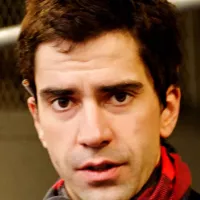
31 minutes ago Hamish Linklater returns in 'Elsbeth' as eccentric attorney battles biohacker on CBS.
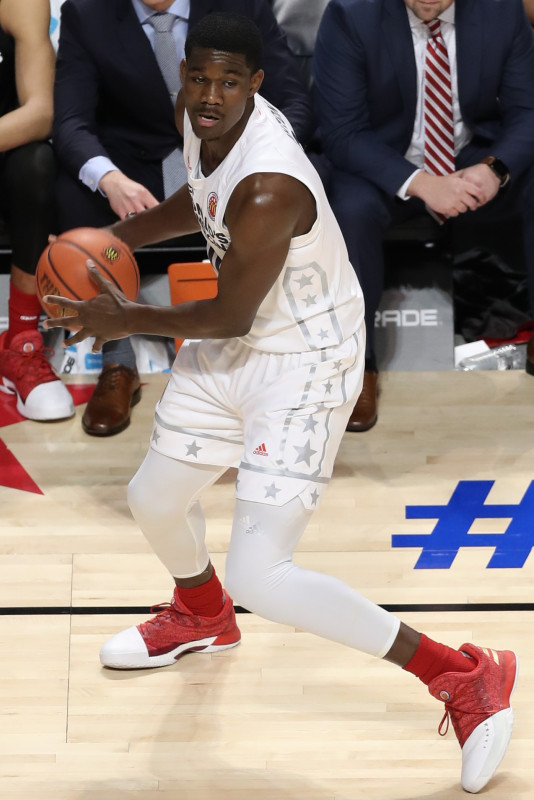
31 minutes ago Deandre Ayton's Role with Lakers: Key to Success or Source of Discontent?
Popular

Jesse Jackson is an American civil rights activist politician and...

Barack Obama the th U S President - was the...

Susan Rice is an American diplomat and public official prominent...

XXXTentacion born Jahseh Dwayne Ricardo Onfroy was a controversial yet...

Michael Joseph Jackson the King of Pop was a highly...

Kashyap Pramod Patel is an American lawyer who became the...
